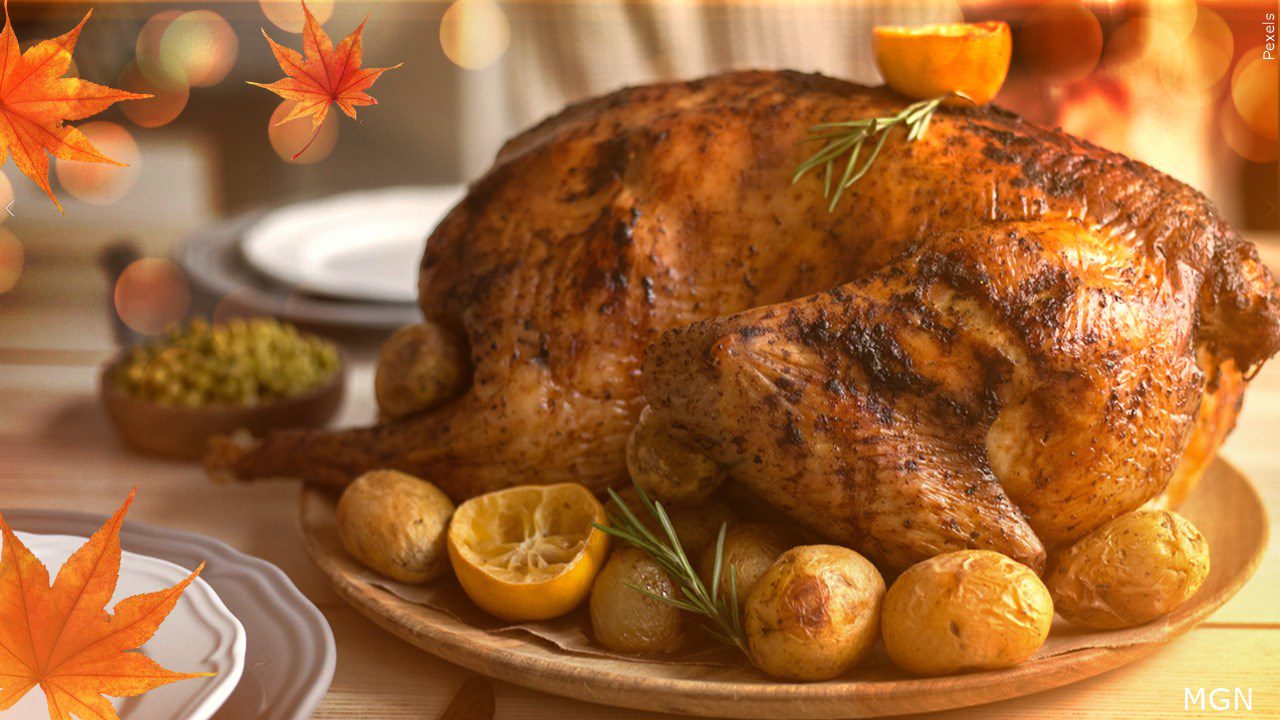Analysts project record turkey, egg prices ahead of Thanksgiving

Courtesy: MGN / Pexels
(ABC 6 News) – Economists at the American Farm Bureau Federation (AFBF) say families can expect to pay record high prices for turkey this upcoming holiday season thanks to the impacts of bird flu, inflation and increased demands on U.S. food systems.
The retail price for fresh boneless, skinless turkey breast reached a record high of $6.70 per pound in September, 112% higher than the same time in 2021 when prices were $3.16 per pound according to analysts.
Similarly, the national average price for a frozen, Grade A, whole young hen, 8-16 pounds, posted a record price of $1.72 per pound in September according to the AFBF. That’s 20% higher than the same time last year when the price was $1.44 per pound.
Inflation is contributing to the price hikes. Economists say all retail food prices were 11.4% higher in August compared to the same time last year. However, despite the higher prices, there should be enough turkeys available for the Thanksgiving demand.
“All of us are feeling the pain of higher prices at the grocery store,” said AFBF President Zippy Duvall. “HPAI outbreaks in the spring and an uptick in cases in the fall are taking a toll, but farmers remain dedicated to ensuring America’s food supply remains strong.”
HPAI has also had a significant impact on the supply of turkey available. The AFBF says turkey production is below this time last year and is forecast to be lower yet in 2023.
The first U.S. case of HPAI in a commercial or backyard flock since the 2014/2015 outbreak occurred on Feb. 8, 2022, in a commercial turkey meat bird operation in Indiana.
According to the U.S. Department of Agriculture, 414 flocks in 39 states have been affected by HPAI since February, costing producers over 40 million birds, mostly commercial turkeys and chickens. The disease has struck 81 Minnesota flocks this year, requiring the killing of nearly 2.7 million birds.
RELATED: Deadly bird flu confirmed in Minnesota, “sooner than anticipated” according to officials
As wild birds made their pilgrimage north in the spring, they spread HPAI to 33 states, and among commercial production, most of the HPAI cases occurred before mid-summer.
However, the fall migration of wild birds south has reignited the spread of HPAI. Analysts say thus far, the number of facilities and birds impacted this fall by HPAI has been significantly less than what occurred in the spring.
On September 28, Minnesota Governor Tim Walz signed an executive order, waiving trucking regulations to help fight the spread of HPAI and mitigate the risk to Minnesota’s poultry industry.
RELATED: Gov. Walz signs executive order to help fight spread of avian influenza
Meanwhile, after reaching record highs in July of $3.34, egg prices have come down. The average price for a dozen grade A eggs is $2.34, about 27% higher than the same time in 2021, and 44% above the 5-year average of $1.29.
Finally, the AFBF says farmers are not profiting from the record high retail prices. High supply costs from feed, fuel, fertilizer and labor make raising turkeys even more expensive. USDA’s most recent Farm Sector Income Forecast predicts record high total production costs, increasing by 17.8% from 2021 to $437.4 billion in 2022.
For more information on the AFBF report, CLICK HERE.